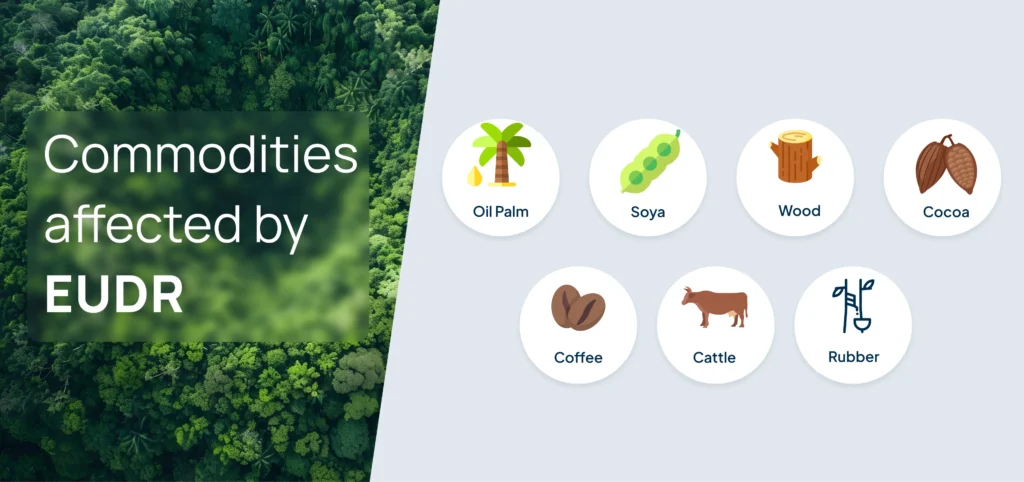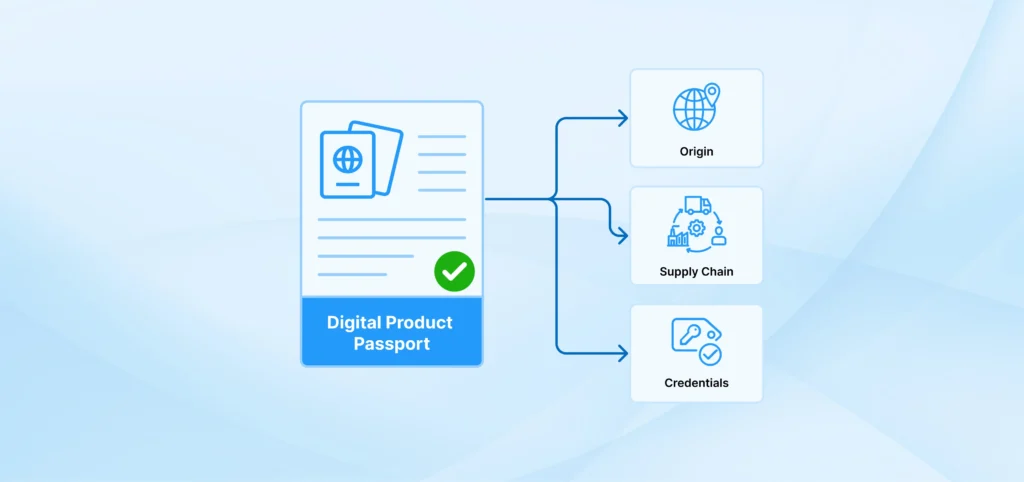Preparing for the EUDR: Key Deadlines, Requirements, and Digital Solutions
Preparing for the EUDR: Key Deadlines, Requirements, and Digital Solutions
The deadline for compliance with the European Union Deforestation Regulation is fast approaching – with the law becoming applicable on 30 December 2025 for large and medium sized companies and 30 June 2026 for micro and small enterprises. Whilst many companies are anxious about this looming deadline, they can’t really complain as the EU has already granted a 12 month additional phasing-in period delaying the original deadline.
EUDR Legislation
This legislation is designed to limit deforestation and degradation caused by forestry and agricultural activities all over the world, caused by the expansion of agricultural land. The production of commodities like cattle, wood, cocoa, soy, palm oil, coffee, rubber, and some of their derived products, such as leather, chocolate, tyres, or furniture has led to devastating consequences including impacts on habitats, biodiversity, food security, and climate change.

The EU’s Regulation is intended to ensure that European markets are not contributing to the problem as well as reducing carbon emissions caused by consumption and production of the relevant commodities.
The EU and the Global Economy
Whilst EUDR is EU legislation, it will impact the global economy. Its scope extends to companies involved in importing, exporting, or placing products on the EU market, regardless of their location. Any ‘in scope’ commodities and derived products may only be made available, placed on, or exported from the EU if they are compliant.
EUDR – The requirements
The commodity has not been produced on land that has been subject to deforestation or forest degradation, based on the UN’s Food and Agriculture Organisation definition, after 31 December 2020.
Legal
The commodity has been produced in accordance with the relevant legislation of the country of production. This includes Land use rights; Environmental protection; Forest management rules; Third parties and Labour rights; Human rights protection under international law; and the UN’s FPIC (the Principle of Free Prior and Informed Consent) covering the rights of indigenous people.
Due Diligence
Commodities are covered by a due diligence statement. This includes submission to the EU Information System (TRACES-NT) covering: Activity; Supply chain information including full contact details; Commodity product details; Quantity; Production place; as well as the Country and Geolocation of plots of land (where the products originate from).
Information must be verifiable. For example, geolocation must be precise and verifiable, submitted with at least six decimal places for latitude and longitude.
Digital Product Passports and EUDR compliance
A DPP (Digital Product Passport) can help facilitate compliance with EUDR by providing a digital record of a product’s origin, supply chain and credentials thereby streamlining the process of proving compliance.

There are some companies promoting DPPs which are little more than an online brochure. An ‘EU compliant’ DPP should incorporate a Unique Identifying Number (UIN) with unique data, specific for each individual product. In addition, by integrating blockchain technology into DPPs, it provides an immutable ledger where data cannot be altered once verified and uploaded. This ensures transparency, as each step in the product lifecycle – from raw material extraction to recycling – is recorded and can be traced.
Similarly, the DPP needs to be interoperable. In other words, it allows different systems, platforms and stakeholders to seamlessly access, exchange, interpret and utilise the product data across global supply chains.
The requirement for DPPs is central to the EU’s approach. It is already embedded within additional EU legislation such as the Battery Products, ESPR (Ecodesign for Sustainable Products Regulations) and Construction Products Regulations.
Digital Product Passports (DPPs) and the European Union Deforestation Regulation (EUDR) are undoubtedly linked. DPPs provide a valuable tool for ensuring compliance with the EUDR by offering a way to track and document the origin and sustainability of products.
Related News
Follow us
The deadline for compliance with the European Union Deforestation Regulation is fast approaching – with the law becoming applicable on 30 December 2025 for large and medium sized companies and 30 June 2026 for micro and small enterprises. Whilst many companies are anxious about this looming deadline, they can’t really complain as the EU has already granted a 12 month additional phasing-in period delaying the original deadline.
EUDR Legislation
This legislation is designed to limit deforestation and degradation caused by forestry and agricultural activities all over the world, caused by the expansion of agricultural land. The production of commodities like cattle, wood, cocoa, soy, palm oil, coffee, rubber, and some of their derived products, such as leather, chocolate, tyres, or furniture has led to devastating consequences including impacts on habitats, biodiversity, food security, and climate change.

The EU’s Regulation is intended to ensure that European markets are not contributing to the problem as well as reducing carbon emissions caused by consumption and production of the relevant commodities.
The EU and the Global Economy
Whilst EUDR is EU legislation, it will impact the global economy. Its scope extends to companies involved in importing, exporting, or placing products on the EU market, regardless of their location. Any ‘in scope’ commodities and derived products may only be made available, placed on, or exported from the EU if they are compliant.
EUDR – The requirements
The commodity has not been produced on land that has been subject to deforestation or forest degradation, based on the UN’s Food and Agriculture Organisation definition, after 31 December 2020.
Legal
The commodity has been produced in accordance with the relevant legislation of the country of production. This includes Land use rights; Environmental protection; Forest management rules; Third parties and Labour rights; Human rights protection under international law; and the UN’s FPIC (the Principle of Free Prior and Informed Consent) covering the rights of indigenous people.
Due Diligence
Commodities are covered by a due diligence statement. This includes submission to the EU Information System (TRACES-NT) covering: Activity; Supply chain information including full contact details; Commodity product details; Quantity; Production place; as well as the Country and Geolocation of plots of land (where the products originate from).
Information must be verifiable. For example, geolocation must be precise and verifiable, submitted with at least six decimal places for latitude and longitude.
Digital Product Passports and EUDR compliance
A DPP (Digital Product Passport) can help facilitate compliance with EUDR by providing a digital record of a product’s origin, supply chain and credentials thereby streamlining the process of proving compliance.

There are some companies promoting DPPs which are little more than an online brochure. An ‘EU compliant’ DPP should incorporate a Unique Identifying Number (UIN) with unique data, specific for each individual product. In addition, by integrating blockchain technology into DPPs, it provides an immutable ledger where data cannot be altered once verified and uploaded. This ensures transparency, as each step in the product lifecycle – from raw material extraction to recycling – is recorded and can be traced.
Similarly, the DPP needs to be interoperable. In other words, it allows different systems, platforms and stakeholders to seamlessly access, exchange, interpret and utilise the product data across global supply chains.
The requirement for DPPs is central to the EU’s approach. It is already embedded within additional EU legislation such as the Battery Products, ESPR (Ecodesign for Sustainable Products Regulations) and Construction Products Regulations.
Digital Product Passports (DPPs) and the European Union Deforestation Regulation (EUDR) are undoubtedly linked. DPPs provide a valuable tool for ensuring compliance with the EUDR by offering a way to track and document the origin and sustainability of products.
Related News
All Catagories
Follow us



